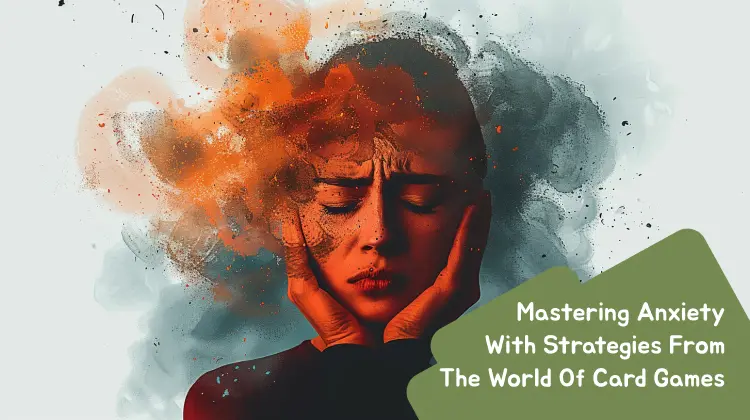
In the pursuit of mental health, knowing how to manage anxiety is as important as having a tranquil card hand in a calming game. Anxiety may seem like an emotional free-for-all at times, but incorporating evidence-based psychological strategies into our day-to-day existence can act as a map toward peace just like a well-thought-out approach does in any card game.
Our minds are frequently fooled by anxiety into thinking that there are dangers when they don’t exist, rather like an inexperienced player fretting about what they do not know. Just as a skilled competitor would read signs and plan around their hand of cards, learning cognitive-behavioral methods allows us to reframe anxious thoughts so we start telling apart perceived threats from real ones.
Cognitive-behavioral therapy (CBT) offers different techniques for dealing with anxious moments just like various cards do for different situations in a deck. Mindfulness, exposure therapy or relaxation exercises are among the many cards that can be played to effectively tackle anxiety. These approaches help the brain learn new ways of coping with anxiety by changing our response to it instead of getting rid of it altogether.
Rather than making predictions about future events or ruminating over past mistakes—much like focusing on your current hand without worrying too much about how things will turn out — mindfulness teaches us how to stay present and concentrate on ‘here and now.’ We can watch what is happening inside us without being judgmental through meditation or controlled breathing while walking mindfully which gives us more clarity in decision making both at poker tables and in everyday life situations.
Exposure therapy involves gradually facing up to things which scare us; this is similar to playing cards with friends over time where it becomes less intimidating because you become used to them. The idea behind this technique lies on increasing levels of difficulty concerning fear-provoking stimuli until confidence grows alongside reduction of its influence over our lives by such anticipation anxiety controls everything we do.
Relaxation methods like deep breathing, progressive muscle relaxation or guided imagery are equal to folding when necessary during a game. They help us voluntarily calm down our physiological symptoms of anxiety by slowing heart rate down, easing muscle tension and bringing peace into our minds which may be racing with thoughts during times of worry.
Incorporating these tactics into everyday living can prove as fulfilling if not more so than mastering any single card game. It means understanding the rules (about anxiety), frequent practice (using techniques daily) and eventually becoming good at knowing what works where just like choosing which card would suit a given moment best since both involve making split-second decisions based on experience gained over time.
While there is no surefire strategy in card games, similarly managing anxiety does not have one-size-fits-all solution either. However, being aware of various psychological strategies we can employ whenever necessary while applying them consistently throughout our lives will give us an upper hand against mental health challenges; thus ensuring that when bluffing becomes the order of things for anxiety, we are prepared enough to play it out and win
